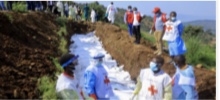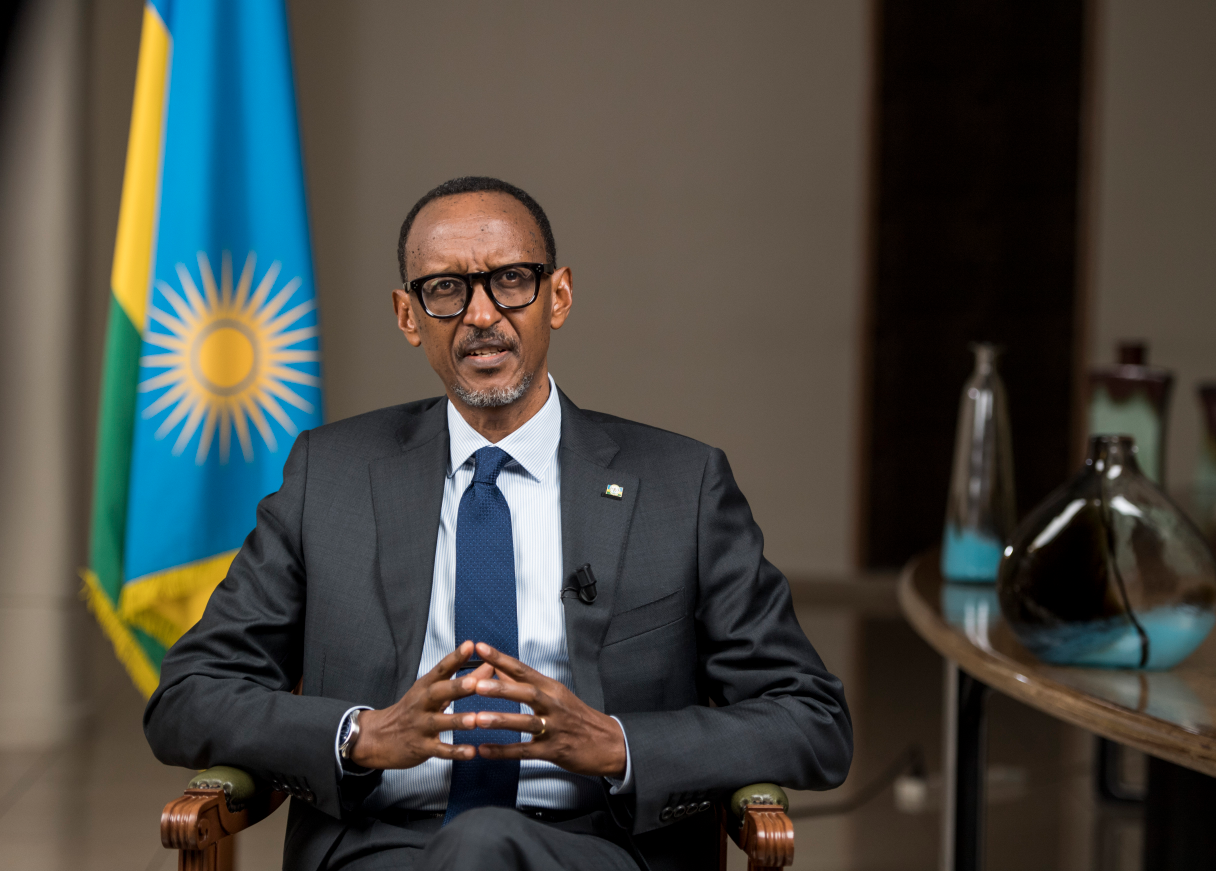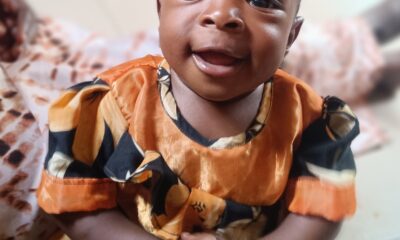News
M23 Rebels Accused of War Crimes in DR Congo

Amnesty International has released a scathing report detailing serious human rights abuses committed by M23 rebels in the eastern Democratic Republic of Congo.
According to the rights group, the rebels have subjected civilians to torture, killings, and enforced disappearances in areas under their control.
Between February and April, Amnesty researchers spoke to 18 people detained by M23 in Goma and Bukavu, revealing a disturbing pattern of abuse.
Detainees were allegedly crammed into overcrowded and unhygienic cells, lacking basic necessities like food, water, sanitation, and medical care.
Some detainees reportedly died due to these conditions or from brutal torture. Witnesses described horrific scenes, including detainees being bludgeoned to death with hammers or shot dead.
All former detainees interviewed by Amnesty said they were either tortured or witnessed others being tortured using wooden sticks, electric cables, or engine belts.
Relatives searching for missing loved ones were often turned away by M23 fighters, who denied detaining them – actions that amount to enforced disappearances, according to Amnesty.
Amnesty International’s Regional Director for East and Southern Africa, Tigere Chagutah, condemned M23’s actions, saying their public statements about bringing order to eastern DR Congo mask their horrific treatment of detainees.
Chagutah urged regional and international actors to pressure Rwanda to cease its support for M23, citing estimates that around 4,000 Rwandan soldiers are backing the rebels.
The report comes amid a renewed surge in violence that erupted in January, displacing hundreds of thousands.
Despite recent pledges by the Congolese army and M23 to seek a truce, clashes continue.
A peace deal drafted in April between Rwanda and DR Congo aims to respect each other’s sovereignty and refrain from providing military support to armed groups, but its success remains uncertain.
News
Court, Congress Pile Pressure on DHS Over Minnesota Operations

Court, Congress Pile Pressure on DHS Over Minnesota Operations
US House Democrats have threatened to begin impeachment proceedings against Homeland Security Secretary Kristi Noem over her handling of the immigration crackdown in Minnesota, unless President Donald Trump removes her from office.
House Minority Leader Hakeem Jeffries warned that Democrats could proceed “the easy way or the hard way,” describing the actions of Noem’s department as “disgusting.”
The crisis follows the fatal shooting of US citizen Alex Pretti by a federal agent, which has triggered backlash in Minneapolis and led to the planned departure of Border Patrol Chief Gregory Borvino and some agents from the city.
Trump has deployed his “border tsar,” Tom Homan, to take charge of on-the-ground operations, while a Minnesota judge has ordered acting ICE director Todd Lyons to appear in court over alleged violations of court orders.
Trump has distanced himself from claims by senior adviser Stephen Miller that Pretti was a “would-be assassin,” saying he did not believe the victim was acting as one.
Video footage shows Pretti holding a phone while filming agents, not a gun, although police say he was a legal firearm owner.
News
UN Raises Alarm Over ‘Spare No-One’ Rhetoric by South Sudan Army Chief

UN Raises Alarm Over ‘Spare No-One’ Rhetoric by South Sudan Army Chief
The United Nations has expressed concern after South Sudan’s Deputy Army Chief, Gen. Johnson Oluny, was heard urging troops to “spare no-one,” including children and the elderly, ahead of military operations in opposition-held areas of Jonglei State.
In a video posted on Facebook, Oluny, addressing members of his Agwelek militia, called for total destruction during the deployment.
The UN Mission in South Sudan condemned the remarks, describing them as “utterly abhorrent,” and warned that inflammatory rhetoric targeting civilians must stop immediately.
South Sudan’s government, however, said the statement did not amount to an official order, insisting it remains committed to protecting civilians.
Minister of Information Ateny Wek Ateny said civilians were being warned only to avoid being caught in crossfire.
The development comes amid escalating fighting in Jonglei, where forces loyal to suspended Vice-President Riek Machar have seized several areas.
The military has ordered civilians, UN personnel and aid workers to evacuate three counties—Nyirol, Uror and Akobo—ahead of an imminent operation.
The UN says more than 180,000 people have been displaced by the renewed violence.
Meanwhile, tensions remain high as opposition forces threaten to advance towards the capital, Juba, a claim dismissed by the army.
South Sudan has been unstable since a 2018 peace deal ended a five-year civil war that killed nearly 400,000 people, but lingering political rivalry and ethnic tensions continue to threaten fragile peace.
Diplomacy
Rwanda sues UK over scrapped migrant deal payments

Rwanda sues UK over scrapped migrant deal payments
The Rwandan government has initiated arbitration proceedings against the United Kingdom, seeking payments it says are owed under the now-abandoned asylum partnership agreement between both countries.
Rwanda has filed the case at the Permanent Court of Arbitration (PCA) in The Hague, arguing that the UK failed to honour financial commitments contained in the deal signed under the former Conservative government.
The agreement, designed to relocate some asylum seekers from the UK to Rwanda, was scrapped in 2024 by Prime Minister Sir Keir Starmer, with the Home Office saying about £220m in future payments would no longer be made.
UK authorities insist the policy was costly and ineffective, pledging to defend the case to protect taxpayers’ funds.
Rwanda, however, says the arbitration concerns unmet treaty obligations and is seeking a legal determination of both parties’ rights under international law.
The PCA lists the case as pending, with no timetable yet announced for hearings or a ruling.
-

 Analysis6 days ago
Analysis6 days agoThe Agony of a Columnist, by Alabidun Shuaib AbdulRahman
-

 Analysis5 days ago
Analysis5 days agoNow That Nigeria Has a U.S. Ambassador-Designate, by Boniface Ihiasota
-

 Diplomacy5 days ago
Diplomacy5 days agoCARICOM Raises Alarm Over Political Crisis in Haiti
-

 News6 days ago
News6 days agoMacron invites Chad’s Déby to Paris amid push to reset ties
-

 News6 days ago
News6 days agoTinubu Unhurt After Brief Stumble at Turkey Reception
-

 News6 days ago
News6 days agoCourt, Congress Pile Pressure on DHS Over Minnesota Operations
























